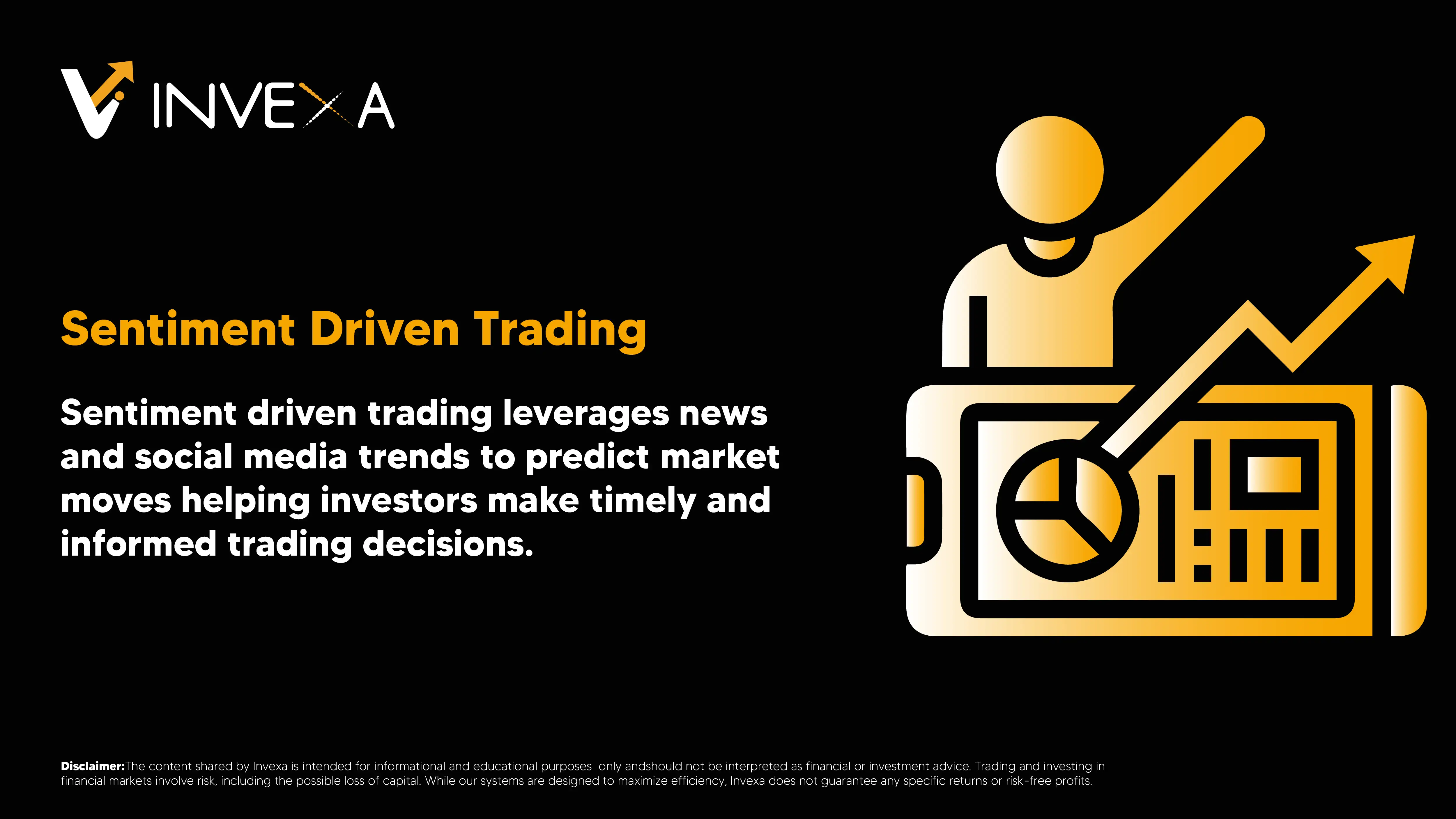
Learn how sentiment driven trading uses news and social media signals to spot market trends early and improve trading strategies.

Ever wish you could sense market mood before the charts catch on? That’s the promise of sentiment driven trading. By tracking news sentiment social media sentiment and viral buzz from places like Reddit and X (Twitter) traders can spot opportunities earlier than those relying only on price or fundamentals. This approach turns crowd emotions into measurable tradable signals.
At its core sentiment analysis trading looks at what people are saying online through Twitter sentiment investing StockTwits sentiment trading forum threads and headlines to capture market mood in near real time. Instead of waiting for lagging indicators traders act on real time sentiment trading insights and social media trading signals.
Modern algorithmic sentiment trading systems use machine learning for sentiment trading and NLP for trading to read millions of posts. Models such as FinBERT trading sentiment and BERT sentiment analysis stocks score text as negative neutral or positive. Those scores feed sentiment based trading strategies that trigger entries exits or hedges.
News analytics trading reacts in milliseconds. Predictive sentiment trading often captures shifts before traditional indicators respond. It also measures breadth across platforms from headline feeds to forum chatter.
Insights from behavioral finance trading show how investor mood moves prices. Blending sentiment and technical analysis can sharpen timing and reduce false signals.
Tracking both mood and discussion volume matters. Metrics like Sentiment Volume Change (SVC) tie attention spikes to returns adding context beyond raw positivity or negativity.
Pull streams for Reddit sentiment trading, Twitter sentiment investing, StockTwits sentiment trading and news sentiment analysis. These feeds fuel market sentiment trading dashboards.
Use sentiment detector tools or your own models. Many teams run quant sentiment strategies that classify text and track sentiment signal strength.
Positive surges can cue sentiment driven investing entries; negative spikes can trigger defensive moves or exits using sentiment based signals.
Combining sentiment and momentum improves accuracy. Traders overlay momentum trend or volatility filters on top of sentiment analytics trading.
Advanced desks run high frequency sentiment trading or automated sentiment trading so orders fire instantly on qualified signals.
Viral buzz can create misleading setups and sentiment momentum trade traps. Overreliance on trader sentiment indexing can fuel herding and fast reversals.
Not every post matters. Strong filters for sentiment signal strength are essential. Expect swings sentiment and volatility tend to move together so use sizing rules and stops.
Many pros add sentiment hedging strategies a sentiment forecasting model and clear rules for real time news trading to handle fast markets and headline shocks.
You’re watching a trending stock. Early sentiment signals surge on Reddit and Twitter. Headlines flip positive reinforcing your news sentiment trading view. Momentum confirms. You enter with a plan to scale out if attention fades or sentiment turns.
Track sentiment trading performance over time to see where your sentiment driven edge shows up and where it doesn’t. Refine rules sources and thresholds.
Sentiment isn’t a crystal ball but it is a fast useful lens. By listening to the crowd through social media sentiment trading and news sentiment analysis then blending it with traditional tools you give yourself clearer context and quicker reactions. Used with discipline it turns chatter into a practical trading edge.